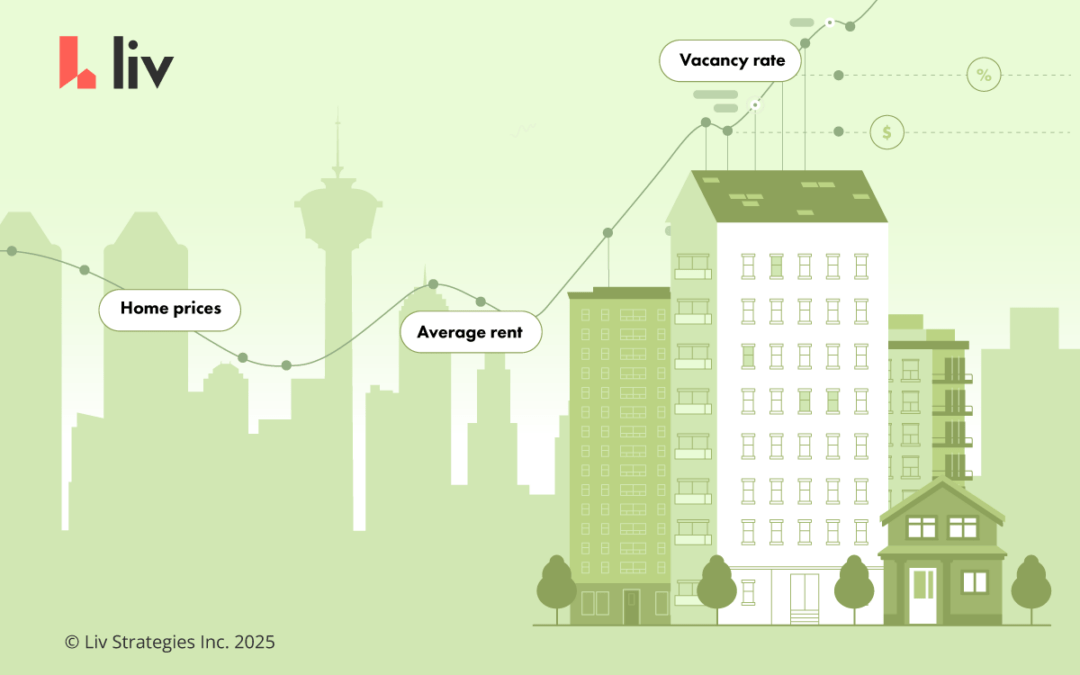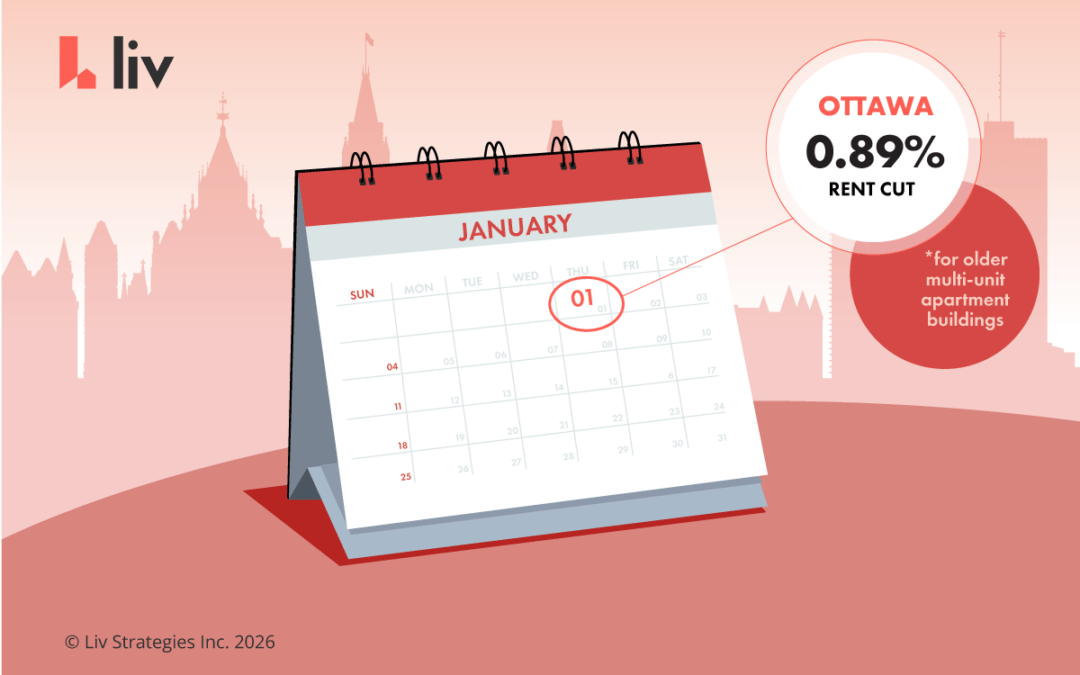Your credit score isn’t just a number—it’s a powerful tool that can open doors to financial opportunities. Credit scores are a normal part of the tenant screening/renting process in Canada and play a big role in other aspects of life too. Whether you’re aiming to secure a mortgage, get approved for a credit card, or simply want to improve your financial health, understanding how to increase your credit score is crucial. In this blog by liv.rent we’re going to explore what exactly a credit score is, why it’s important and how you can take control of your credit to unlock a brighter financial future.
Streamline tenant selection with comprehensive credit checks
Ensure you choose the best tenants with liv.rent’s Trust Score, which combines credit information from Equifax® credit checks with multi-layered verification protocols. Minimize rental risks and make informed decisions.
What is a credit score?
In Canada, two main credit bureaus run credit checks and provide credit scores: Equifax and TransUnion.
A credit score is a numerical representation of your creditworthiness, which is used by lenders to assess the risk of lending you money or extending credit. In Canada, credit scores typically range from 300 to 900. The higher your score, the more likely you are to be approved for loans and credit at favourable terms, such as lower interest rates.
Your credit score is calculated based on five primary factors: payment history, amounts owed, credit history age, types of credit and new credit enquiries. It provides a quick snapshot of how well you manage credit and can significantly impact your financial life, from securing a mortgage to renting an apartment or even getting a job in some cases. In this next section, we take a look at these factors and how you can improve your credit score.
How is your credit score calculated?
A credit score is calculated using a combination of factors: your payment history (35%), which tracks whether you’ve paid bills on time; credit utilization (30%), the amount of available credit you’re using; length of credit history (15%), which considers the age of your accounts; types of credit (10%), which looks at your mix of credit accounts; and new credit inquiries (10%), which measures the impact of recent credit applications. These factors are weighted differently to create a score that reflects your overall creditworthiness. In this section, we take a more in-depth look at each of these factors.
1. Payment History (35%)
This is the most crucial component of your credit score. It reflects your track record of paying off debt on time. Lenders want to know if you’ve consistently met your financial obligations, so they look at:
- On-time Payments: Regular, on-time payments on credit accounts like credit cards, mortgages, and loans have a positive impact on your score.
- Late Payments: Payments that are late by 30 days or more can significantly lower your score. The more recent and frequent the late payments, the more detrimental they are.
- Public Records and Collections: Bankruptcies, foreclosures, and accounts sent to collections are serious negative marks that can cause a substantial drop in your score.
- Severity of Delinquency: How late a payment is (30, 60, 90 days, or more) also plays a role—the later the payment, the more damage it does.
2. Amounts Owed (30%)
This factor, often referred to as your credit utilization ratio, measures the amount of credit you’re using relative to your available credit limits. It’s calculated as:
- Credit Utilization Ratio: This is the balance you owe on all your credit accounts compared to your total credit limit. For example, if you have a total credit limit of $10,000 and your balances total $2,500, your credit utilization ratio is 25%. A lower ratio (ideally under 30%) is better, as it shows you’re not over-reliant on credit. Here is a great calculator to help.
- Total Amount Owed: The total sum of all your outstanding balances across different credit accounts is also considered, though it’s less influential than the ratio itself.
- Balances Across Different Accounts: Having high balances on multiple accounts, especially close to your credit limits, can negatively impact your score.
This section is difficult to improve, but the best way to maintain a high credit score is to avoid all of the above infractions and maintain good financial standing.
3. Length of Credit History (15%)
This factor considers the age of your credit accounts. The longer your credit history, the better, because it gives lenders more information to assess your creditworthiness. It includes:
- Age of Oldest Account: The older your oldest account, the better, as it shows a long history of responsible credit use.
- Average Age of Accounts: This is the average age of all your credit accounts. Opening new accounts frequently can lower this average and negatively impact your score.
- Length of Specific Credit Types: Having a long history with certain types of credit, like a mortgage or a car loan, can be beneficial.
4. Types of Credit (10%)
This factor considers the variety of credit accounts you have. A mix of different types of credit can show that you’re capable of managing different kinds of financial responsibilities. Types include:
- Revolving Credit: This includes credit cards and lines of credit, where you have a set limit but can borrow as needed.
- Installment Loans: These are loans that you pay off in fixed amounts over time, like mortgages, car loans, and student loans.
- Retail Accounts and Other Loans: Having different types of accounts, including retail store accounts and personal loans, can also be considered.
5. New Credit Inquiries (10%)
This factor looks at how many new credit accounts you’ve applied for recently. Each time you apply for credit, it triggers a “hard inquiry” on your credit report, which can affect your score:
- Hard Inquiries: These occur when a lender checks your credit report to make a lending decision. Each hard inquiry can slightly lower your score, though the effect diminishes after a few months and disappears after two years.
- Soft Inquiries: These are credit checks that don’t affect your score, such as when you check your own credit or when lenders pre-approve you for offers.
- New Credit Accounts: Opening multiple new accounts in a short period can be seen as risky behaviour and can lower your score, especially if you don’t have a long credit history.
Find the right renters faster with the Trust Score
Unlock an easier, more effective way to screen renters. The Trust Score from liv.rent combines credit information from Equifax®️, income & employment verification, court records, and more into one easy-to-understand score. Click here to view an example of the Trust Score.
Neo Everyday Account
Maximize your money with the Neo Money™ account—no monthly fees, no minimum balance required, and free everyday transactions. Enjoy up to 3% cashback on gas and groceries, plus unlimited cashback at over 10,000 partners, all while keeping your deposits safe with CDIC protection. Want to find out more? Click here!
How to improve your credit score
When looking at ways to improve your credit score there are many different ways to approach this task, we are going to look at five main areas that can help you get started. The government of Canada also has some guidance on how to boost your credit score.
1. Diversify Your Credit Mix
Your credit mix, which makes up 10% of your score, refers to the variety of credit types you have, such as credit cards, mortgages, and installment loans. Having a mix of different credit types shows that you can manage various forms of credit responsibly. If your credit profile is lacking diversity, adding a different type of credit (like a small personal loan or a secured credit card) could help improve your score. This shows financial institutions that you are not only financially capable of shouldering debt from multiple sources but you’re also diversified in where you place your money.
2. Pay on time
Your payment history is the most significant factor in determining your credit score, accounting for 35% of the total. Even one missed or late payment can negatively impact your score. To boost your score, it’s essential to consistently pay all your bills on time, including credit card payments, loans, utilities, and even small accounts like phone bills. For younger students a great way to build your credit is to take out a small loan and pay it back in small repayments over time. This demonstrates to banks that you have both the ability to pay back debts and the consistency to never miss a payment.
3. Keep your credit utilization rate low
Low utilization demonstrates to lenders that you’re not overly reliant on credit and are managing your finances responsibly. This is important as it is deemed a risk measure, if you have a high utilization rate you are much more susceptible to interest rates. This can particularly be the case for business owners who choose to finance the operation of their business with credit cards.
4. Limit applying for new accounts
Every time you apply for new credit, it results in a hard inquiry on your credit report, which can temporarily lower your score. While one or two inquiries won’t have a huge impact, multiple inquiries within a short period can suggest to lenders that you’re a higher risk, especially if you have a short credit history. Lenders are looking for stability over a long period so it’s best to look to the future and plan any new lines of credit accordingly.
5. Keep old accounts open
The length of your credit history accounts for 15% of your credit score. Older accounts help increase the average age of your credit history, which is favourable for your score. Closing old accounts, especially those in good standing, can reduce the length of your credit history and potentially lower your score. It may be worth it to close old accounts if you are paying a monthly fee to keep them open but if the account has no fees it is best to keep it open even if it is inactive.
Credit score for renters
When a potential tenant applies for an apartment and a landlord feels like they could be a good fit, they’re going to run a credit score before starting a tenancy.
This is a normal part of the rental process and typically renters should expect landlords to ask for their information and consent to run a credit check. We dive into this topic more in our blog what kind of credit score do you need to rent an apartment. You can double-check with your local privacy laws to see how you’re protected.
A landlord will use a service like Equifax, for example, and using your information they will pull a credit report.
Credit score for landlords
Credit checks cost money and take time. There’s no reason why a landlord would do it for fun or to satisfy their curiosity.
For them, it’s a necessary part of their tenant screening process to get them their ideal renter who always pays their rent on time. When tenants are late or even delinquent on rent it creates so many problems more than just being out one month’s rent. It creates a lot of extra work for them, especially if they decide they have no other option than to evict a renter.
To avoid the headaches, stress, and even legal problems that can come with having a tenant who’s late with their rent or doesn’t pay it they use the credit check as a pre-screening tool.
Credit checks can help landlords in so many ways. Not only is it additional protection against fraud by verifying their identity, but it also will show them a potential renter’s payment habits.
Discover an easier, safer way to rent
Rent safely from verified landlords on liv.rent. Fill out & submit your application, chat with landlords, and securely pay rent – all on Canada’s safest rental platform.
Resources for you
We have compiled some additional resources to give you everything you need to stay on top of your credit score:
- Credit score education
- Theft & Fraud Assistance
- Canadian Government Guidance
- Get a free credit report

Rethink The Way You Rent
Not on liv.rent yet? Experience the ease of digital applications & contracts, verified tenants & landlords, virtual tours and more – all on one platform. Sign up for free or download the app.
Subscribe to receive the latest tenant & landlord tips and get notified about changes in the Canadian rental market.
>> Stay up-to-date on the average rent in Vancouver, Toronto and Montreal: Rent Reports.




0 Comments